April 14, 2025 | 06:48 GMT +7
April 14, 2025 | 06:48 GMT +7
Hotline: 0913.378.918
April 14, 2025 | 06:48 GMT +7
Hotline: 0913.378.918
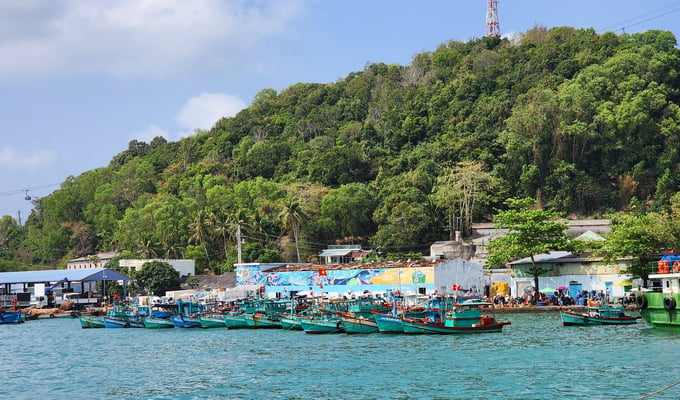
The tourism industry in the Mekong Delta has undergone multiple innovations in terms of its local signature products. Photo: Kim Anh.
The tourism industry in the Mekong Delta has undergone multiple innovations in terms of its local signature products. With the help of various promotional programs, provinces and cities within the region have implemented policies to develop local signature tourism products. Efforts in advertising and connecting with tourism centers outside the region such as Ho Chi Minh city, Da Nang, and provinces in Northern Vietnam have attracted a considerable number of domestic and international tourists.
Additionally, the completion of the local expressway contributed to the increased connectivity between the Mekong Delta, Ho Chi Minh city and other provinces and cities in the Southeastern region.
The tourism product "One Destination, Four Localities +", launched by the Mekong Delta Tourism Association and the tourism industry of Can Tho, An Giang, Kien Giang, Ca Mau, and Bac Lieu, is a commendable endeavor. Accordingly, these provinces and cities are the primary destinations of over 70% of the Mekong Delta region's tourists.
Vietravel, a travel agency, is also effectively operating two product lines: the Mekong Delta tour connecting Can Tho - Soc Trang - Bac Lieu - Ca Mau and the Mekong Delta tour connecting Tien Giang - My Tho - Con Thoi Son Island - Ben Tre - Con Phung Island.
However, according to Mr. Tran Huu Hiep, Vice Chairman of the Mekong Delta Tourism Association, the region's tourism industry is currently facing three challenges: inadequate tourism infrastructure, a shortage of skilled tourism workforce, and a lack of an effective mechanism for coordinating regional connections and value chain integration in the tourism industry, resulting in a disrupted tourism space within Ho Chi Minh city.
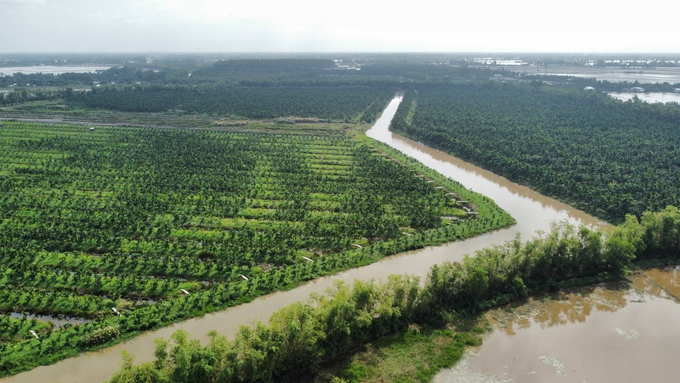
National parks and conservation areas within the Mekong Delta possess significant potential for tourism development thanks to their high levels of biodiversity. Photo: Kim Anh.
Mr. Hiep pointed out that the tourism approach in the Mekong Delta heavily relies on spontaneous and unprofessional efforts. Namely, local tourism products mainly exploit natural resources without long-term investment. Tourist spaces such as the Mekong Delta Rice Museum in Vinh Long, the Coconut Museum in Ben Tre, the upgraded Khmer Cultural Museum in Tra Vinh, and the Southern Cuisine Museum in Dong Thap are well-established, but lack investment. This limitation is caused by a lack of a leadership for the Mekong Delta tourism industry.
The Ministry of Culture, Sports and Tourism proposed the establishment of a Steering Committee for Tourism Development in the Mekong Delta region on January 23, 2015. This proposal was outlined under Decision No. 194/QD-BVHTTDL approving the Project "Building signature tourism products in the Mekong Delta region". However, to date, the Mekong Delta lacks an effective operational coordination model for the local tourism industry.
A survey conducted by Mr. Huynh Van Da at the Faculty of Social Sciences and Humanities, Can Tho University, involving 164 businesses and 764 tourists across 9 national parks and conservation areas in the Mekong Delta region, revealed that the region possesses significant potential for tourism development thanks to its high levels of biodiversity, complemented by numerous endemic wild species and unique ecosystems such as mangrove forests, marshes, peatlands, etc.
According to tourism businesses, factors influencing tourism development at national parks in the Mekong Delta region include technical infrastructure, physical infrastructure, service prices, and cultural resources.
On the other hand, tourists prioritize factors such as technical infrastructure, resources and environment, service staff, physical infrastructure, and finally, service prices.
This difference highlights the need for the Mekong Delta to adjust its tourism development strategy in accordance with factors affecting the industry's development.
Mr. Da suggested that the Mekong Delta tourism industry needs to focus on environmental protection and landscape improvement; strengthening and innovating promotional campaigns to raise awareness among tourists and the local community regarding sustainable resource use and environmental protection.
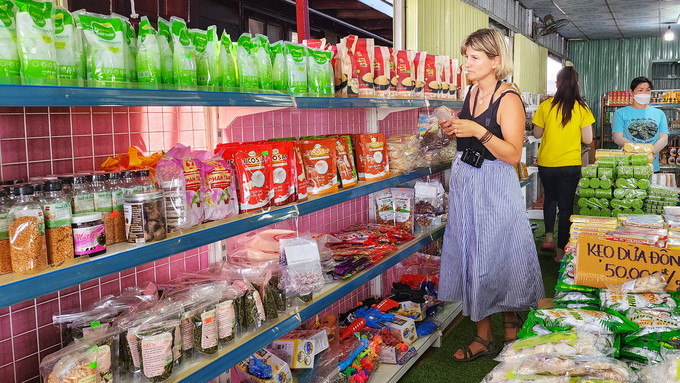
Experiential agricultural tourism, in association the trading of local specialties and OCOP products, is a solution to diversify and enhance the quality of tourism in the Mekong Delta. Photo: Kim Anh.
Furthermore, there is a need to enhance tourism development policies; gradually diversify and improve the quality of key tourism products such as: Experiential ecotourism in wetland ecosystems; Experiential agricultural tourism in farming models within buffer zones, in association with the trading of local specialties and OCOP products; Mice tourism in association with cultural events, arts, and sports activities in the riverine region; Cultural-spiritual tourism in association with the cultural and spiritual life, and beliefs of local residents within national parks and conservation areas.
In addition to facilitating the development of various tourism models, Mr. Da highlighted the importance of encouraging community participation, with a focus on shared benefits from ecological services and forest environmental payment services.
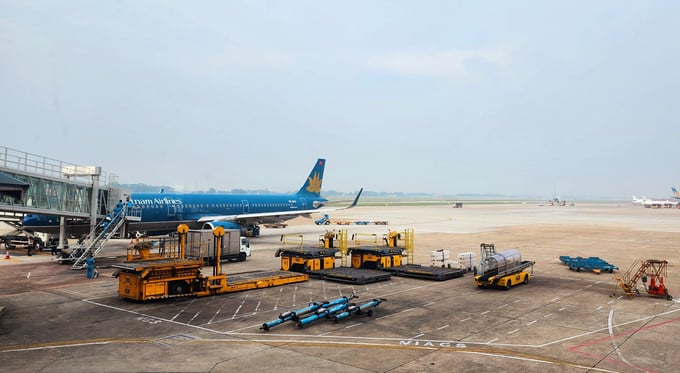
Collaboration with airlines to expand seasonal flights to the Mekong Delta allows the region to promote tourism development. Photo: Kim Anh.
According to Ms. Le Dinh Minh Thy, Director of Vietravel's branch in Can Tho, the tourism industry in the Mekong Delta needs to establish a central hub for culinary and cultural activities. Notably, local culinary and cultural activities are currently limited to night markets, with the majority of food stalls being operated by individual vendors with overlooked food safety and hygiene measures.
"The establishment of a culinary and cultural center in the Mekong Delta not only contributes to innovating tourism products, but also promotes the unique culinary culture of the region, complemented by the cultures of neighboring regions and countries, which will attract more tourists," Ms. Thy emphasized.
Notably, various airlines have increased the number of flights to the Mekong Delta in accordance with seasonal demand. However, the operation of flights at airports within the region is still limited in terms of capacity.
For instance, no international flights were available at the Can Tho International Airport in 2022. New domestic routes experienced a decrease in capacity, such as the Can Tho - Van Don (Quang Ninh) route. Several domestic routes such as Can Tho - Da Lat; Can Tho - Phu Quoc have been completely suspended.
Translated by Nguyen Hai Long

(VAN) According to Deputy Prime Minister Bui Thanh Son, through this P4G Summit, Vietnam aims to convey the message of transforming its growth model towards rapid and sustainable development.
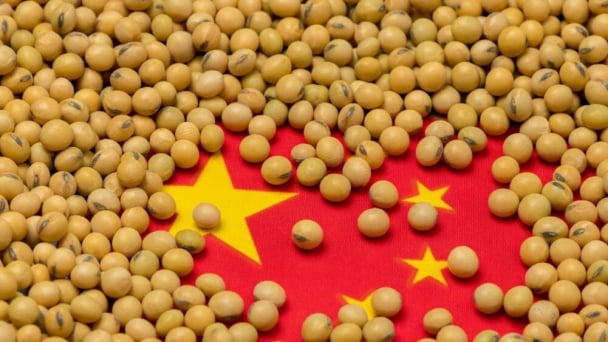
(VAN) Soybean production has been a priority for China to ensure food security, with increased soybean cultivation and yields highlighted in the annual No. 1 Central document.
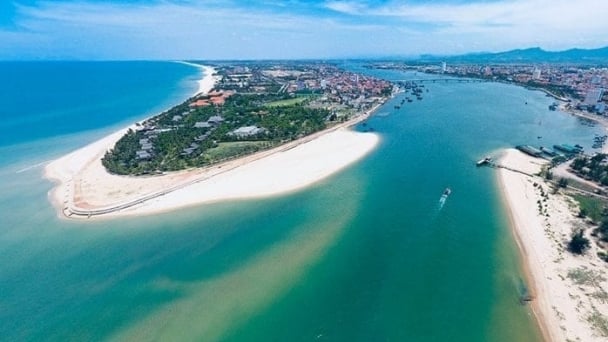
(VAN) Vietnam Sea and Islands Week 2025 is expected to take place in Quang Binh, featuring a series of meaningful activities aimed at protecting the ocean through green technology solutions.
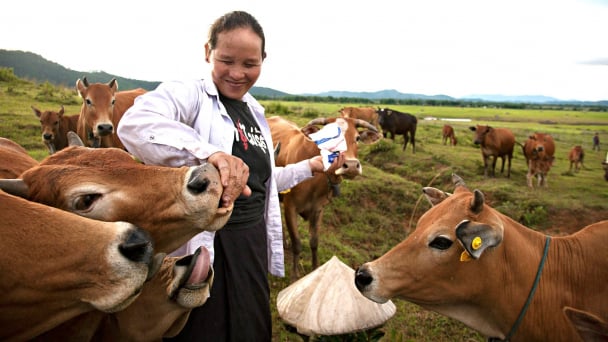
(VAN) The One Health approach is no longer merely an option, as increasingly complex challenges confront health and food systems.
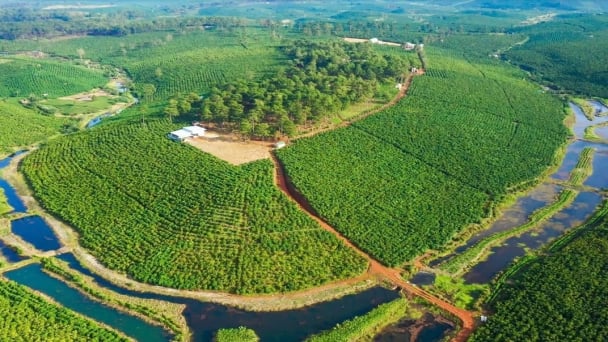
(VAN) The project promoting sustainable coffee production, with a focus on waste management and raising farmers’ awareness, has achieved many positive results after nearly two years of implementation.
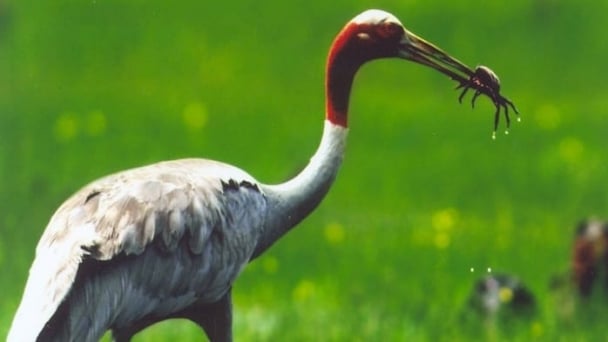
(VAN) Transferring and receiving 6 individuals of the red-crowned crane from Thailand to Vietnam marks a significant milestone in the conservation efforts for this species.
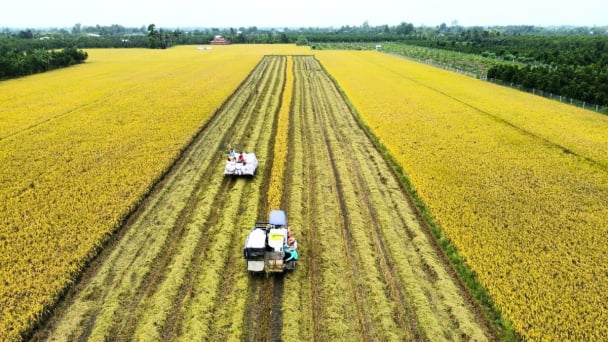
(VAN) After more than a year of implementation, the One Million Hectares of High-Quality, Low-Emission Rice project has completed the first steps, but it needs breakthrough solutions to deepen impacts in the upcoming phase.